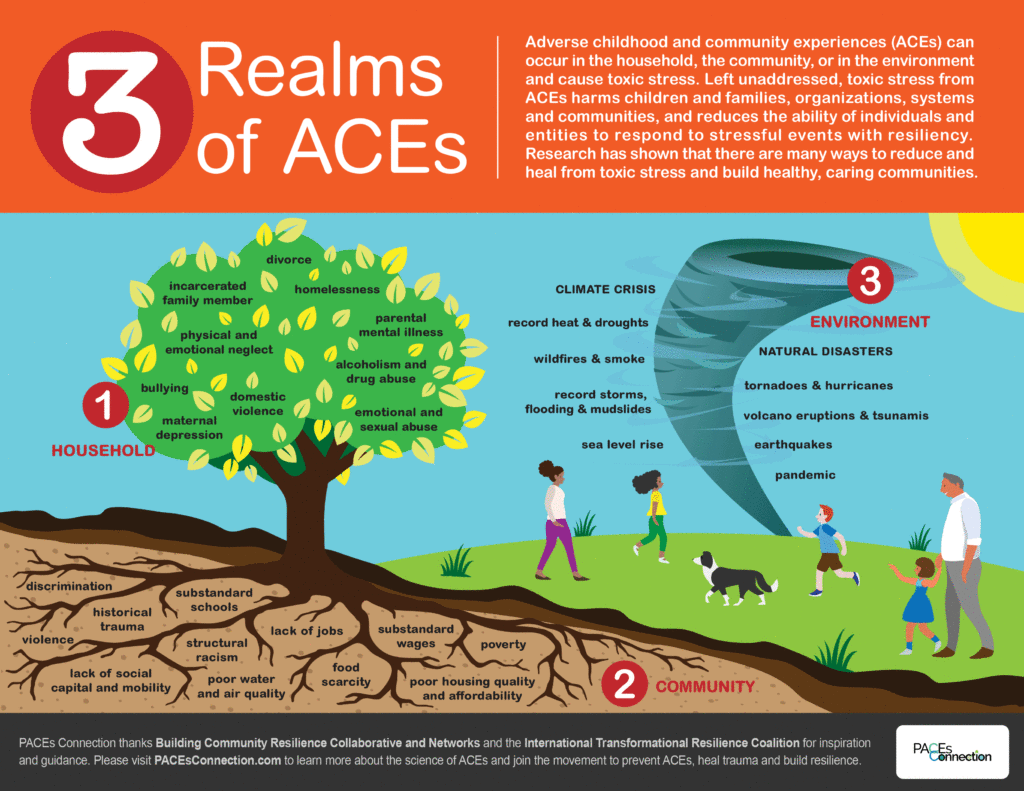“To ensure that all children, especially Black youth, have the privilege to live full lives, educators must confront racism and the resulting trauma from it. If not, we are not really doing equity work, and we are not really trauma-informed or trauma-sensitive. We are just saying we are.”
– Dena Simmons, EdD
The California School-Based Health Alliance believes that engaging in anti-racist practice is essential to comprehensive trauma-informed services. We recognize that sociocultural trauma that students experience – such as oppression, racism, sexism, inequity, homophobia, implicit bias, micro aggression, ableism, xenophobia, and classism – informs their daily lives.
These cultural contexts can compound the effects of more commonly referenced trauma such as violence, sexual assault, natural disaster, loss, medical trauma, child abuse and neglect, and forced displacement.
When creating more trauma-informed schools it is necessary to address all the ways that trauma can affect students, families, and communities, and to approach the work with cultural humility and deep self-reflection of power and privilege.
The Power of Resilience
Trauma-informed practices should also take into consideration resilience and the strength and protective factors that students and communities possess. Many students thrive even while experiencing trauma. Providers must build upon the strength and capacity that is already inherent in the students and communities that they serve.
Like trauma, resilience can be passed between generations and positively impact individuals, families, and communities. The human brain always retains the capacity to adapt and grow.
The self healing skills we define as resilience can ripple into families and communities and be passed to the next generation.

Image courtesy PACEs Connection





